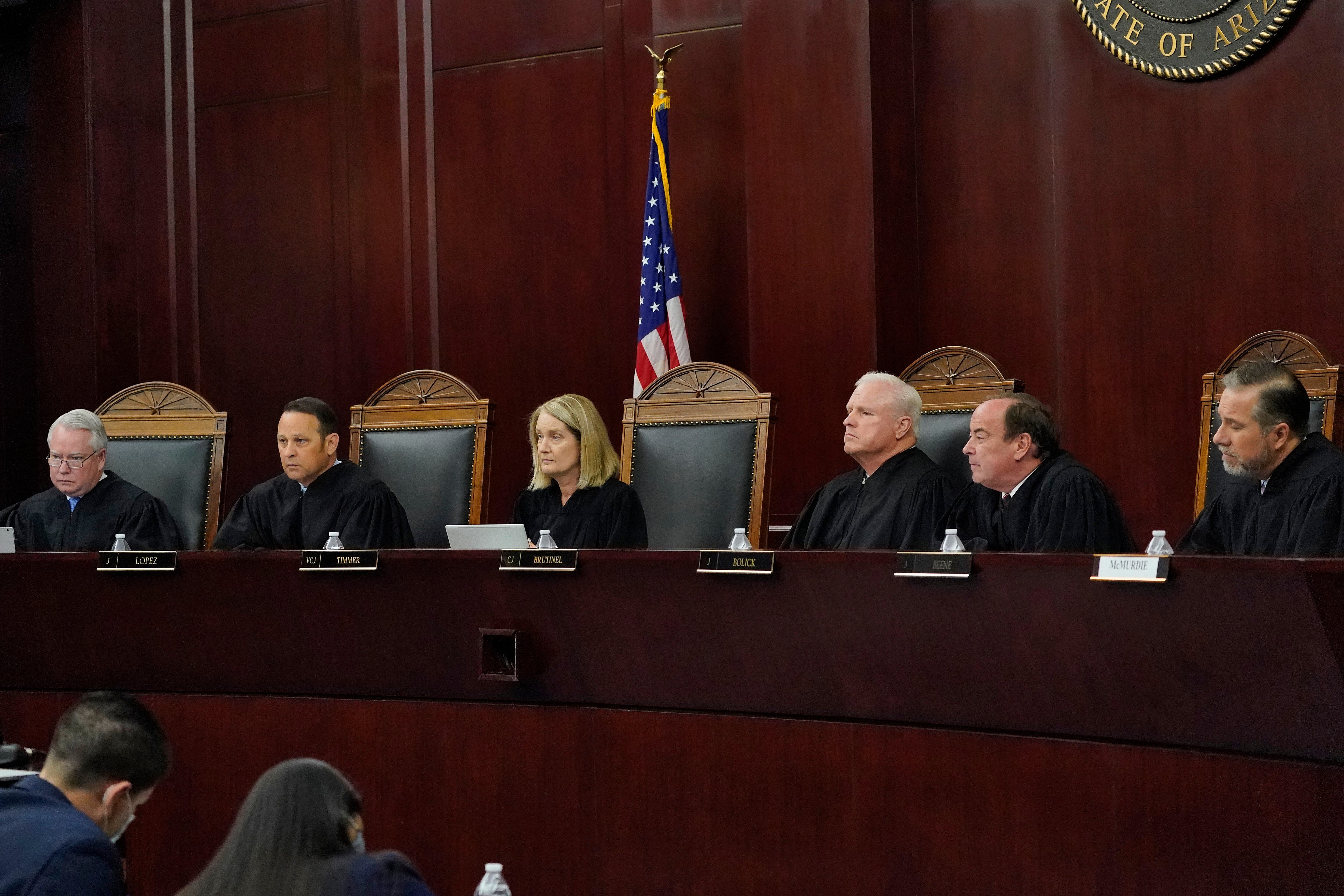The Arizona Supreme Court ruled Tuesday that the state can enforce its long-dormant law criminalizing all abortions except when a mother’s life is at stake.
The case examined whether the state is still subject to a law that predates Arizona’s statehood. The 1864 law provides no exceptions for rape or incest, but allows abortions if a mother’s life is in danger. The state’s high court ruling reviewed a 2022 decision by the state Court of Appeals that said doctors couldn’t be charged for performing the procedure in the first 15 weeks of pregnancy.
An older court decision blocked enforcing the 1864 law shortly after the U.S. Supreme Court issued the 1973 Roe v. Wade decision guaranteeing a constitutional right to an abortion. After the U.S. Supreme Court overturned Roe v. Wade in June 2022, then state Attorney General Mark Brnovich, a Republican, persuaded a state judge in Tucson to lift the block on enforcing the 1864 law. Brnovich’s Democratic successor, Attorney General Kris Mayes, had urged the state’s high court to side with the Court of Appeals and hold the 1864 law in abeyance. Since the U.S. Supreme Court’s 2022 decision ending a nationwide right to abortion, most Republican-controlled states have started enforcing new bans or restrictions and most Democrat-dominated ones have sought to protect abortion access.
Currently, 14 states are enforcing bans on abortion at all stages of pregnancy, with limited exceptions. Two states ban the procedure once cardiac activity can be detected, which is about six weeks into pregnancy and often before women realize they’re pregnant.
Nearly every ban has been challenged with a lawsuit. Courts have blocked enforcing some restrictions, including bans throughout pregnancy in Utah and Wyoming.
A proposal pending before the Arizona Legislature that would repeal the 1864 law hasn’t received a committee hearing this year. “Today’s decision to reimpose a law from a time when Arizona wasn’t a state, the Civil War was raging, and women couldn’t even vote will go down in history as a stain on our state,” Mayes said Tuesday.
The justices said the state can start enforcing the law in 14 days. Former Arizona Gov. Doug Ducey, who signed the state's current law restricting abortion after 15 weeks, posted on X saying Tuesday's ruling was not the outcome he would have wanted.
“I signed the 15-week law as governor because it is thoughtful policy, and an approach to this very sensitive issue that Arizonans can actually agree on,” he said. President Joe Biden called the 1864 Arizona law cruel.
“Millions of Arizonans will soon live under an even more extreme and dangerous abortion ban, which fails to protect women even when their health is at risk or in tragic cases of rape or incest,” he said in a statement. “Vice President Harris and I stand with the vast majority of Americans who support a woman’s right to choose. We will continue to fight to protect reproductive rights and call on Congress to pass a law restoring the protections of Roe v. Wade.”









